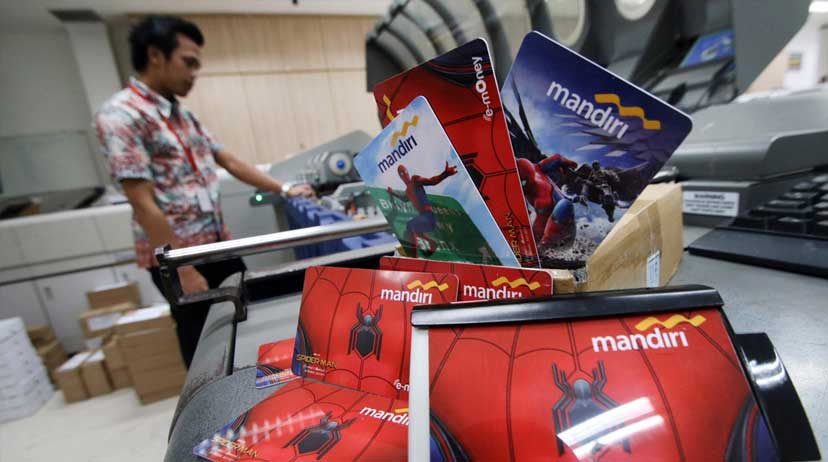E-wallets close in on debit cards in cashless transaction volumes

E-wallets are gaining further traction in Indonesia, although debit cards continue to dominate the country’s cashless transactions.
According to the latest data issued by Bank Indonesia (BI), the debit cards contributed more than half of all cashless transactions in July, holding onto the lion’s share of such transactions by volume. Interestingly, despite the dominance of the debit card, e-wallets gained the second largest share in the same month.
The data shows that 54.6 percent of cashless transactions in July were done using debit cards, while a very close 42.6 percent was by electronic money. The remaining 2.8 percent was done with credit cards.
Electronic money of e-wallet transactions comprise those using e-money cards such as BCA Flazz and Mandiri e-money, as well as those using e-wallet applications such as Go-Pay, OVO and LinkAja.
“Electronic money transactions continue to rise, especially in early 2018, following its rapid adoption in digital ecosystems and its compulsory usage on toll roads,” BI macroprudential policy department head Filianingsih Hendarta told The Jakarta Post in a text message on Oct. 1.
She was referring to the rise of Go-Jek, Grab, Tokopedia, Traveloka, among other e-commerce platforms, which will be a $133 billion industry by 2025, according to a Google-Temasek report released on Friday, last week.
However, debit cards virtually monopolize cashless transactions in terms of monetary value with a 94 percent share of the Rp 717.3 trillion ($50.7 billion) circulated in July. Credit cards, which held a 4.2 percent share, outranked electronic money, which held 1.8 percent, BI data shows.
Customers’ predominant usage of electronic money in paying for car rides, food delivery and toll roads explains why such transactions are smaller in monetary value than debit and credit cards.
Debit cards have also been around longer than electronic money. The central bank issued its first regulation on card-based payment instruments in 2005, 13 years before issuing Regulation No. 20/2018 on electronic money.
“Debit cards are an instrument backed by customer funds and a fundamental banking service.” added Filianingsih.
Meanwhile, e-wallet players frequently say their biggest rival is neither debit cards nor credit cards but cash, which they estimate is used in 90 percent of all transactions in Indonesia.
“We want total debit transactions to remain as they are and more cash transactions to convert to electronic,” said Danu Wicaksana, chief executive officer of state-owned e-wallet LinkAja.
Indonesian e-wallet players are known for championing a ‘cash-burning’ strategy, whereby they offer cash back on purchases made using their respective platforms, in habitualizing customers to use their products.
In line with players’ efforts, electronic money transactions leaped in value over the past three years. Total transactions averaged Rp 71.2 billion each day until July this year, higher than the daily average of Rp 33.9 billion in 2017, but not as high as the average Rp 129.3 billion last year, when e-wallets boosted cashback promotions.
LinkAja’s strategy slightly differs from those of its competitors because it leverages the ecosystem of other state-owned enterprises, many of which are market leaders in their respective industries. The e-wallet already works with state-owned toll operator Jasa Marga and leading fuel retailer Pertamina.
LinkAja even announced on Wednesday a partnership with state-owned train operator Kereta Commuter Indonesia (KCI) in allowing passengers to pay for train rides using the e-wallet.
Source: The Jakarta Post
Author: Norman Harsona
www.jakartapost.com


